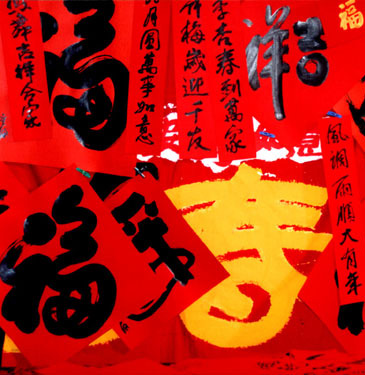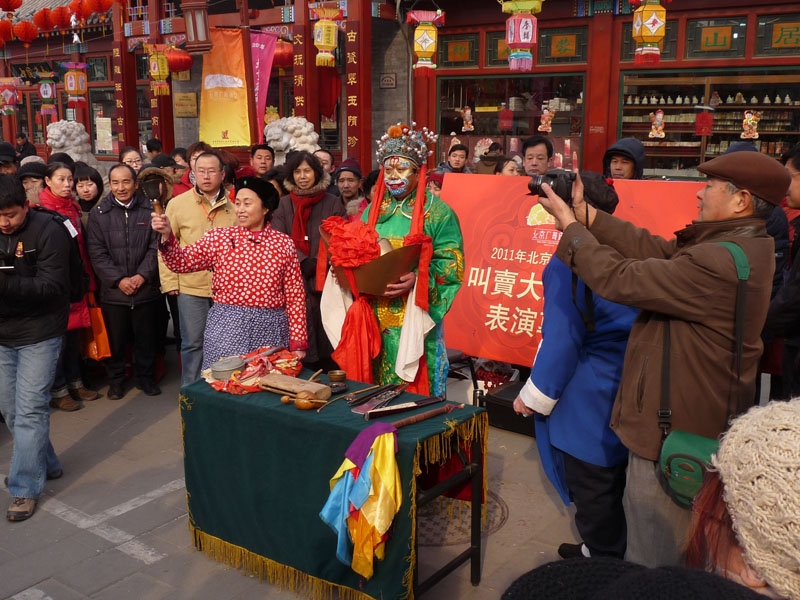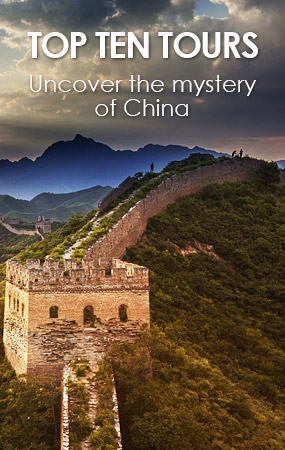Spring Festival, Chinese New Year
About Chinese New Year
Far and away the most important holiday in China is Chinese New Year, also known as theSpring Festival. To the Chinese people, it is as important as Christmas to people in the West. The dates for this annual celebration are determined by the lunar calendar rather than the Gregorian calendar, so the timing of the holiday varies from late January to early February.
| About Chinese New Year | The 12 Animals of Chinese New Year Calendar | How to celebrate Chinese New Year? |
| Chinese New Year Eve | Chinese New Year Greetings | Chinese New Year Tours |
The 12 Animals of Chinese New Year Calendar
| Rat | 1900 | 1912 | 1924 | 1936 | 1948 | 1960 | 1972 | 1984 | 1996 | 2008 | 2020 |
| Ox | 1901 | 1913 | 1925 | 1937 | 1949 | 1961 | 1973 | 1985 | 1997 | 2009 | 2021 |
| Tiger | 1902 | 1914 | 1926 | 1938 | 1950 | 1962 | 1974 | 1986 | 1998 | 2010 | 2022 |
| Rabbit | 1903 | 1915 | 1927 | 1939 | 1951 | 1963 | 1975 | 1987 | 1999 | 2011 | 2023 |
| Dragon | 1904 | 1916 | 1928 | 1940 | 1952 | 1964 | 1976 | 1988 | 2000 | 2012 | 2024 |
| Snake | 1905 | 1917 | 1929 | 1941 | 1953 | 1965 | 1977 | 1989 | 2001 | 2013 | 2025 |
| Horse | 1906 | 1918 | 1930 | 1942 | 1954 | 1966 | 1978 | 1990 | 2002 | 2014 | 2026 |
| Sheep | 1907 | 1919 | 1931 | 1943 | 1955 | 1967 | 1979 | 1991 | 2003 | 2015 | 2027 |
| Monkey | 1908 | 1920 | 1932 | 1944 | 1956 | 1968 | 1980 | 1992 | 2004 | 2016 | 2028 |
| Rooster | 1909 | 1921 | 1933 | 1945 | 1957 | 1969 | 1981 | 1993 | 2005 | 2017 | 2029 |
| Dog | 1910 | 1922 | 1934 | 1946 | 1958 | 1970 | 1982 | 1994 | 2006 | 2018 | 2030 |
| Pig | 1911 | 1923 | 1935 | 1947 | 1959 | 1971 | 1983 | 1995 | 2007 | 2019 | 2031 |
Chinese New Year 2011 is the year of Rabbit, which begins on February 3, 2011.  A person born in the year of the Rabbit are friendly, outgoing and enjoy the company of a group of good friends.
A person born in the year of the Rabbit are friendly, outgoing and enjoy the company of a group of good friends.
Chinese New Year is an official holiday in mainland China, Hong Kong and Macau. Most people will have 7 days off work. In 2011, people will be off work from Feb 2, 2011 to Feb 8, 2011 for New Year celebrations.
How to celebrate Chinese New Year?
Preparations for the New Year begin the last few days of the last moon, when houses are thoroughly cleaned and decorated, debts repaid, hair cut, new clothes purchased and New Year food prepared. Houses are festooned with paper scrolls bearing auspicious antithetical couplet (as show on both side of the page) and in many homes, people burn incense at home and in the temples to pay respects to ancestors and ask the gods for good health in the coming months.
House Cleaning
On the days before the New Year, Chinese families give their houses a thorough cleaning. But traditionally, this practice is done on New Year Eve. The dust and dirt are traditionally associated with "old" in Chinese culture, so cleaning the houses and sweeping the dust mean to bid farewell to the past new and usher in the new year.
House Decoration
Days before the New Year festival, department stores, official buildings, office buildings and streets will be decorated with Red Lanterns and Red Couplets. Decorations for private houses are usually done on New Year's Eve. People will paste red couplets and door gods on doors, hold red lanterns in their houses. The reason why red color is frequently used for New Year decorations is that it is associated with good fortune and happiness in Chinese culture. In North China, it is customary to paste Paper Cut on windows while in South China, such as Guangzhou and Hong Kong, certain flowers and plants such as Kumquat Tree are frequently used.
Decorations for private houses are usually done on New Year's Eve. People will paste red couplets and door gods on doors, hold red lanterns in their houses. The reason why red color is frequently used for New Year decorations is that it is associated with good fortune and happiness in Chinese culture. In North China, it is customary to paste Paper Cut on windows while in South China, such as Guangzhou and Hong Kong, certain flowers and plants such as Kumquat Tree are frequently used.
Chinese New Year Eve
On New Year's Eve, all the members of families come together to feast. Jiaozi, a steamed dumpling as pictured below, is popular in the north, while southerners favor a sticky sweet glutinous rice pudding called nian gao.
Chinese New Year Feast
The New Year's Feast is "a must" banquet with all the family members getting together. People from north and south have different sayings about the food they eat on this special day. Southern Chinese eat "niangao" (New Year cake made of glutinous rice flour) on this special day, because a homophone of "Niangao", means "higher and higher every year". In northern China, a traditional dish for the feast is "Jiaozi" or dumplings which are shaped like a crescent moon. Legend has it that the more dumplings you eat during New Year celebration, more money you can make in the New Year. "Fish" is also a must on this banquet. In Chinese, Fish sounds like "save more". Chinese People always like save more money at the end of year because they think if they save more, they can make more in the next year.
Staying up late (shousui)
Shousui means to stay up late or all night on New Year's Eve. After the New Year's Feast, families sit together and chat happily to wait for the New Year's arrival.
Lighting Firecrackers
Lighting Firecrackers used to be one of the most important customs in the Chinese New Year celebration. But because of the danger and the noise disturbance that firecrackers may bring the government has banned this practice in many major cities such as Beijing, Guangzhou and Shanghai. However, people in small towns and rural areas still hold to this traditional celebration. Just as the clock strikes 12 o'clock, beginning a new year on the Chinese lunar calendar, cities and towns are lit up with the sparkle of fireworks and the sound can be deafening. Families stay up for this joyful moment and kids with firecrackers in one hand and a lighter in another cheerfully celebrate by throwing the small explosives one by one into the street, whilst plugging their ears.
Chinese New Year Greetings
On the first day of the New Year, everybody wears new clothes and greets relatives and friends with bows and Gongxi (congratulations), wishing each other good luck, happiness during the new year. In the first day of the New Year, it's customary for the younger generations to visit the elders, wishing them healthy and longevity.
Traditionally, the second day of Chinese New Year is for married daughter to visit the house of her parents.
From the third day to the seventh day, people go out to visit relatives and friends.
The eight day is the end of the official New Year Holiday and people will go to work on this day. All of government agencies and business will stop celebrating on the eighth day.
The fifteenth Day of the New Year is the Lantern Festival, which marks the end of the Spring Festival celebrations.
Lucky Money
"Lucky money" is the money given to kids from their parents, grandparents and bosses to their employees as a New Year gift. The money is believed to bring good luck and ward off evil spirits, hence the name "lucky money". Parents and grandparents first put the money in small, especially-made red envelopes and give the red envelopes to their kids in the first day of the New Year. They choose to put the money in red envelopes because Chinese people think red is a lucky color. They wish the lucky color will bring their children good luck in the coming year. This activity is often the kids' favorite.
During the period of New Year, Chinese people would friendly greet one another with some unique greetings as they come across each other. Here are some
新年快乐(xīn niān kuài lè) Happy New Year!
过年好 (guò nián hǎo) Happy New Year!
恭喜發財 (gōng xǐ fā cái) happy and prosperous (It is always used as the phrase when one receiving gifts or luck money during Chinese New Year.)
生意兴隆 (shēng yì xīng lóng) prosperous business
万事如意 (wàn shì rú yì) good luck in every thing
工作顺利 (gōng zuò shùn lì) everything goes well with your work
阖家欢乐 (hé jiā huān lè) felicity of whole family
Chinese New Year Activities - Temple Fair
Temple fair was a kind of social activity. The temple fair was a time to worship the gods and pray for blessing in times past. It was also a great time to have fun. This centuries old tradition is still preserved today.
Beijing holds temple fair every Spring Festival. The most famous temple fairs are those held in White Cloud Temple, the Altar of Earth, Dragon Pool and the Temple of Intense Happiness. Temple fairs in Beijing have preserved many traditional customs, such as riding a monkey to stroll around the temple fair and throwing coins through the hole in the center of a copper coin at the White Cloud Temple.
Many goods sold in the temple fair have typical northern features. Toys like diabolo and pinwheel, big sugarcoated haws on a stick, and gruel of millet flour and sugar are very popular among common people. Artistic folk performances, rich tasty snacks from Beijing and the folk handicrafts are the most attractive points of these fairs.
The yangge, stilt walkers or lion dancers give the temple fairs a bustling atmosphere and attract the people. You can also buy clay bristled figurines, dough figurines and paper-cuts, which are characteristic of local culture and Beijing charm.
As many local people come to the temple fair to watch the performances or sample snacks during the Spring Festival, the temple fairs are very crowded. Though it's super crowded, Chinese always enjoy it. It offers a great opportunity to enjoy the characteristics of the local culture of Beijing.
Chinese New Year Travel Tips
Travel within China during the Chinese New Year holidays has its advantages as well as its disadvantages. It is a great opportunity to get to know how Chinese people celebrate Chinese New Year. But public transportation during Chinese New Year Holiday is very crowded and Northern China is extremly cold.
Chinese New Year Travel Tips
:- Trains will be much crowded during the period of Chinese New Year, so try to avoid travelling by rail if at all possible.
- Arrange as much of your itinerary as possible beforehand, and make reservations for flights and hotels in advance.
- Chinese New Year usually comes on the coldest days of the year in China, soyou are advised to bring along enough warm clothes.
- Chinese New Year food is always rich in calorie, and people might get sick by having too much in a time. It’d better to prepare some medicines in advance, and try to have a good control of the temptation of the delicacies.
- 6 Days Beijing New Year Celebration Tour
- Beijing New Year Eve Celebration
- 1 Day New Year Celebration Activities Tour
Chinese New Year Tours
We offer customers a great opportunity to celebrate Chinese New Year's Eve just as locals in Beijing do! You can experience the festival atmosphere; join in decorating a house with the owners by experiencing Chinese calligraphy.
Please feel free to contact us if you would like to cutomize your Chinese New Year Celebration Tours.

